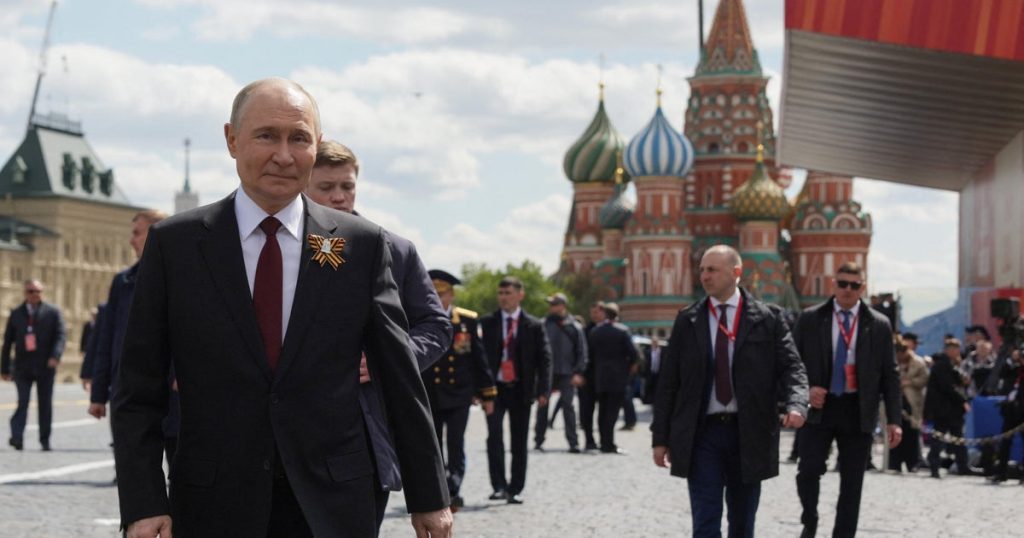On May 9, 2025, Russia celebrated Victory Day, marking the 80th anniversary of the end of World War II in Europe. This annual event showcased a parade in Moscow featuring military personnel and advanced weaponry, highlighting Russia’s continued military prominence. Notably, the parade served both as a remembrance of past victories and a display of political strength amidst ongoing global tensions, particularly regarding Ukraine.
| Article Subheadings |
|---|
| 1) The Significance of Victory Day |
| 2) Preparations for the Parade |
| 3) International Presence at the Event |
| 4) Putin’s Speech and Its Implications |
| 5) Broader Context and Future Implications |
The Significance of Victory Day
Victory Day is a revered occasion in Russia, commemorating the defeat of Nazi Germany on May 9, 1945. This day has historical significance as it symbolizes resilience and sacrifice; millions of Soviet soldiers and civilians perished during the war. The observance of this day fosters national pride and unity, reminding citizens of their past struggles and triumphs. For the Russian government, the event is an opportunity to reaffirm its narrative of strength and military prowess, often portraying the sacrifices of the past as a foundation for current national identity.
Preparations for the Parade
Preparations for the Victory Day parade are extensive and strategic. Months in advance, Russian officials coordinate logistics to ensure a grand display. Central Moscow faces significant restrictions as roads are closed and public transport rerouted. This year’s event was particularly notable due to heightened security concerns following recent tensions and military engagements, especially with Ukraine. Thousands of personnel, extensive equipment, and elaborate displays were mobilized to create a powerful spectacle, aiming to demonstrate military readiness and national pride.
International Presence at the Event
The military parade featured notable international dignitaries, including Xi Jinping, the President of China, and Luiz Inacio Lula da Silva, the President of Brazil. Their attendance signified Russia’s efforts to bolster alliances amid increasing geopolitical isolation. The close proximity of Putin to leaders like Xi during the event sent a message of solidarity against perceived Western encroachments. This gathering not only highlighted military alliances but also signified a maneuver by Russia to showcase its position on the global stage, countering narratives that place it as an isolated actor.
Putin’s Speech and Its Implications
In his address during the parade, Putin alluded to contemporary challenges faced by Russia, particularly in the context of Ukraine, labeling the situation as a “difficult time in our history.” However, his speech refrained from detailing military strategies or specifics about the ongoing conflict. Instead, he focused on valorizing soldiers and reinforcing national pride. This rhetoric aimed to unite the populace and rally support around the government’s military activities, particularly in light of escalating casualties and international scrutiny.
Broader Context and Future Implications
The Victory Day parade, while primarily celebratory, also serves as a political function in the current climate of conflict. Russia’s performance of military strength stands in stark contrast to the realities of ongoing warfare in Ukraine, where casualties among Russian troops reportedly number in the tens of thousands over recent years. As air strikes threatened Moscow’s security, the parade represented not only a celebration of past triumphs but also a narrative of resilience against a new adversary. It is pivotal to understand how these events cultivate domestic support while fostering an atmosphere where military engagements continue amidst ongoing warfare.
| No. | Key Points |
|---|---|
| 1 | Victory Day symbolizes Russian national pride and historical resilience. |
| 2 | The parade involved extensive security measures and logistical planning. |
| 3 | International leaders attended to signify alliances amidst geopolitical tensions. |
| 4 | Putin’s speech highlighted military valor without clarity on current strategies. |
| 5 | The parade served as a dual function: celebration and distraction from ongoing conflict. |
Summary
In conclusion, the 80th anniversary of Victory Day in Russia not only honored past sacrifices but also served as a crucial platform for political expression and military affirmation. The event showcased Russia’s ongoing military capabilities while bringing together international figures to reinforce diplomatic ties. However, amidst the grandeur of the parade, the realities of contemporary warfare and international scrutiny loom large, highlighting the complex dynamics that influence Russia’s domestic and foreign policies.
Frequently Asked Questions
Question: Why is Victory Day celebrated in Russia?
Victory Day celebrates the defeat of Nazi Germany in World War II, symbolizing resilience and national pride for Russia.
Question: Who were the notable international leaders present at the parade?
The parade featured international leaders such as Xi Jinping from China and Luiz Inacio Lula da Silva from Brazil, highlighting Russia’s diplomatic relations.
Question: What was the significance of Putin’s speech during the parade?
Putin’s speech aimed to boost morale and support for the military, emphasizing national pride without delving into specifics about current military strategies.
